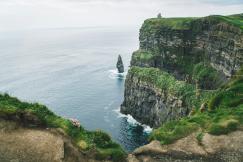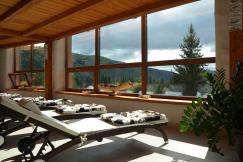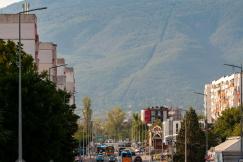Best practices
09 October 2024
Adler-Bärental Hotel: A model of sustainable tourism and regional cuisine in the Black Forest
Best practices
09 October 2024
Gastronomy tourism
Wellness tourism
Best practices, peer learning and networking
+12 more
Login / create an account to be able to react
-
4

The Adler-Bärental hotel in Germany combines traditional charm with a strong commitment to sustainability and regional cuisine, benefiting both the environment and the local community.
Green Tourism
Topics
Albania
Armenia
Austria
Belgium
Bosnia and Herzegovina
Bulgaria
Croatia
Cyprus
Czechia
Denmark
Estonia
EU-27
Finland
France
Georgia
Germany
Greece
Hungary
Iceland
Ireland
Italy
Kosovo
Latvia
Liechtenstein
Lithuania
Luxembourg
Malta
Moldova
Montenegro
Netherlands
North Macedonia
Norway
Poland
Portugal
Romania
Serbia
Slovakia
Slovenia
Spain
Sweden
Switzerland
Türkiye
Ukraine
Company with 250 or more employees
Consumer Organisations
Destination Management & Marketing Organisations
Local Authorities
National authorities
Regional Authorities
SMEs (a company with less than 250 employees)
-
Specific types of tourism
-
-
Gastronomy tourism
-
Wellness tourism
-
-
Transition Pathway Strategic Areas
-
-
Best practices, peer learning and networking
-
Green Transition of Tourism Companies and SMEs
-
Innovative tourism services
-
Promoting PEF/OEF methods for tourism
-
Short-term rentals
-
-
Business activities
-
-
Camping grounds, recreational vehicle parks and trailer parks
-
Holiday Housing / Apartments and other short stay accommodation
-
Hotel and similar accommodation
-
Other accommodation
-
Other food and beverage services
-
Restaurants, cafes and bars (Food and Beverage serving activities)
-
Tour operator activities
-
Travel agency activities
-
Share
The case study highlights the Adler-Bärental hotel in Germany, which offers 17 beautifully decorated rooms in a traditional style. Renowned for its excellent cuisine based on fresh, seasonal, and regional products, the hotel is well-known throughout the Black Forest. The owners actively participate in environmental activities, understanding that nature is their main asset for tourism. In 2012, they introduced environmental management practices, including renewable energy use, energy conservation, waste management, and eco-friendly cleaning products. This commitment to sustainability and regional cuisine not only enhances the guest experience but also helps preserve the unique Black Forest countryside, benefiting local farmers, restaurateurs, and customers alike.
#Sustainable destinations #Wellness tourism #Community engagement #Cultural preservation
Comments (0)
Related content
See also
-
11
Sustainable EU Tourism - Key challenges and best practices
- Categories
- Coastal, maritime and inland water tourism Cultural tourism Ecotourism +64 more
-
3
Seehotel Wiesler: Embracing nature and sustainability in the Black Forest
- Categories
- Best practices, peer learning and networking Green Transition of Tourism Companies and SMEs Innovative tourism services +8 more
-
2
Sustainable hospitality at Chateau Montagne Hotel in Bulgaria
- Categories
- Best practices, peer learning and networking Green Transition of Tourism Companies and SMEs Innovative tourism services +8 more






